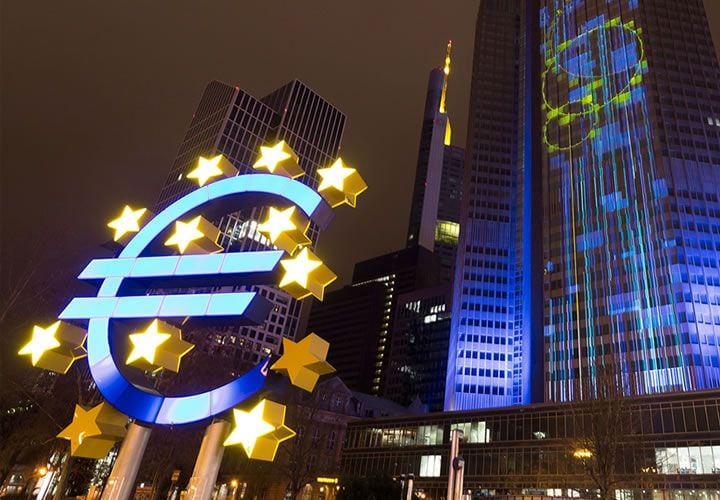Euro to be Contained by the ECB's Big Inflation Headache - it’s Going to Fall Faster than they Expect
- Written by: Gary Howes

What does the Euro exchange rate complex require to really rocket higher?
The answer is an European Central Bank that is willing to walk away from its ultra-loose monetary policies.
It needs to start shutting down its various money-printing programmes and raise interest rates from record-low levels.
But, these moves are a long way off it is argued by one of Germany’s leading financial services institutions.
In a new briefing to clients Commerzbank argue:
- There will be no interest rate rise until 2019 at earliest
- Tapering of the money-printing programme is likely in early 2018 in order to avoid breaching legal limit
But this view on tapering is hardly the kind of fuel needed to inspire a Euro rally as it appears to be a technical call rather than a fundamental reassessment of the ECB's role in the economy.
Indeed, analysts at Barclays argue that tapering in 2018 is already fully priced by markets.
"An already priced tightening by the ECB in 2018, with risks from a downshift in core inflation expected later this year, and the reacceleration of other economies in more advanced cyclical positions, will challenge the EUR’s relative value," says Marvin Barth, an analyst with Barclays in London.
If anything there is likely to be good reason for the ECB to avoid withdrawing its stimulus programme.
Of note, core inflation remains subdued with Commerzbank citing high unemployment in the Eurozone as being the reason wages will grow at a modest pace and will unlikely threaten a sharp move higher in core inflation.
Unemployment must come down from its ~9% levels in order to start pressing wages higher, and thus forcing core inflation higher alongside.
And, overall inflation (which includes one-off factors like fuel prices rises) is likely to fall faster than the ECB is expecting.
Speculation on rate hikes was undoubtedly triggered primarily by the inflation rate, which hit 2.0% in February.
The ECB is expecting it to decline slowly towards 1.7% by the end of the year.
"It would have to fall even more slowly to prove encouraging enough for the bank to raise interest rates earlier. However, according to our forecast, it is likely to fall more rapidly, and to drop to just above 1% by the end of the year," say Commerzbank.
Commerzbank see inflation falling to 1.6% this month.
"Our prediction is based in part on our forecast that core inflation will stick at just short of 1%. In addition, we expect inflation overall to fall more rapidly since our commodities analysts envisage the price of Brent at under $50 by the end of the year," reads the note.
For one thing, economists at the German bank are sceptical about OPEC sticking to production quotas, because Saudi Arabia needs the additional revenue funds to satisfy domestic needs and will no longer compensate for output increases by other cartel members, as it has in the past, by scaling down its own production.
In addition, US oil production seems set to rise substantially once more.
While nothing in the assessment bodes for notable Euro strength, it certainly doesn't suggest we can expect a sustained rally.
Therefore, more of the same is likely and the Euro should trade around current levels for some time.



